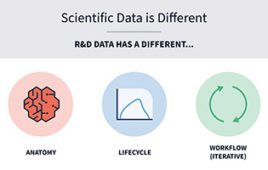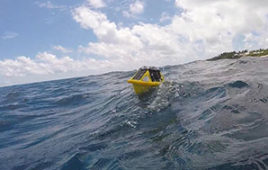Nanomedicine 2011 – 3rd ESF Summer School
The ESF Summer School has been designed to provide an intensive state-of the- art training across all of the sub-disciplines of Nanomedicine, and to foster discussion and exchange of ideas in a relaxed atmosphere. The lectures, tutorials and interactive workshops will particularly cover all aspects that are needed to transfer new nanotechnologies from bench to bedside – from materials science and engineering to clinical need, from rational design of nanopharmaceuticals, imaging agents and constructs for tissue engineering to safe and practical development. The programme will be structured to allow free time in the afternoon for informal networking and small group tutorials with timetabled events in the morning, late afternoon and evening. Posters will be mounted throughout the meeting.
Background:
The ESF Forward Look Report on Nanomedicine (2005; www.esf.org) recommended the need to establish Pan-European interdisciplinary Research and Training Conferences covering the broad field of Nanomedicine. The first highly successful ESF Research Conference on Nanomedicine was held at Sant Feliu de Guixols, Spain, 2006. This was followed by the 1st and 2nd ESF Summer Schools in Nanomedicine which took place in Cardiff, UK (2007) and Lisbon, Portugal (2009). The Summer School is a biennial event to be held at different locations throughout Europe and in 2011it will be hosted by the University of Halle-Wittenberg.
Aims and purpose:
The ESF Summer School has been designed to provide an intensive state-of the-art training across all of the sub-disciplines of Nanomedicine, and to foster discussion and exchange of ideas in a relaxed atmosphere. The lectures, tutorials and interactive workshops will particularly cover all aspects that are needed to transfer new nanotechnologies from bench to bedside – from materials science and engineering to clinical need, from rational design of nanopharmaceuticals, imaging agents and constructs for tissue engineering to safe and practical development. The programme will be structured to allow free time in the afternoon for informal networking and small group tutorials with timetabled events in the morning, late afternoon and evening. Posters will be mounted throughout the meeting.
How to participate:
The Summer School programme will cover Nanomedicine at a level that will be accessible to participants with diverse backgrounds – including Chemistry, Physics, Engineering, Biology, Pharmaceutical Sciences, Medicine, and Ethics. The course will be specifically tailored to early career researchers (PhD students, Post-docs), medical doctors and industrialists entering this emerging field.
Invited speakers will include:
- Rainer Alex, F. Hoffmann La Roche Ltd., CH
- Andreas Briel, nanoPET Pharma GmbH, DE
- Tomas Etrych, Institute of Macromolecular Chemistry, CZ
- Heidi Foth, Martin-Luther-Universität Halle-Wittenberg, DE
- Rogerio Gaspar, Universidade de Lisboa, PT
- Hamed Ghandehari, Nano Institute of Utah University, US
- Arwyn Tomos Jones, Cardiff University, UK
- Charlotte Kloft, Martin-Luther-Universität Halle-Wittenberg, DE
- Karsten Mäder, Martin-Luther-Universität Halle-Wittenberg, DE
- Dusica Maysinger, McGill University, CA
- Rolf Nitzsche, Malvern Instruments GmbH, DE
- Alfred Nordmann, Technische Universität Darmstadt, DE
- Hans Oberleithner, Westfälische Wilhelms-Universität Münster, DE
- Gert Storm, F.A.F.C. Wentgebouw, NL
- Maria Vicent, Prince Felipe Research Centre, ES
The school is open to scientists world-wide, whether from academia or industry. Attendance is possible only after successful application. Support grants will be available for early stage researchers to cover the course fee and, possibly, part of the travel costs. Grant requests should be made by ticking appropriate field(s) in the paragraph “Grant application” of the application form. Grants are distributed based on geographical origin*, financial need and scientific merit. Grantees must attend the entire course in order to benefit from the grant.
[*A certain number of grants are garanteed for students and early stage researchers coming from CEE countries: Albania, Bosnia-Herzegovina, Bulgaria, Croatia, Czech Republic, Estonia, Hungary, Kosovo, Latvia, Lithuania, Macedonia, Montenegro, Poland, Romania, Serbia, Slovakia, Slovenia.]



